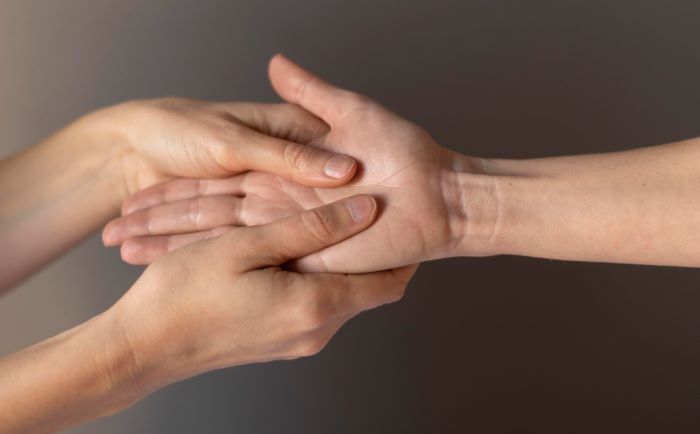Scientific studies have shown a relaxing massage increases dopamine levels. Depression is a pervasive mental health issue affecting millions of people worldwide. While conventional treatments such as medication and therapy can be effective, complementary approaches are increasingly gaining attention for their potential to enhance well-being. One such approach is massage therapy, which has been shown to have a positive impact on mental health, particularly by increasing dopamine levels. Here we’ll explore how a relaxing massage increases dopamine levels, and help ease depression and improve overall emotional well-being.
Understanding Dopamine
Dopamine is a neurotransmitter that plays a critical role in regulating mood, motivation, and reward. Low dopamine levels are associated with depression, anxiety, and a decreased ability to experience pleasure. By increasing dopamine levels, we can improve mood and alleviate depressive symptoms.
The Science Behind Massage and Dopamine
Research has demonstrated that massage therapy can have a significant impact on neurotransmitter levels, including dopamine. A study published in the International Journal of Neuroscience found that participants who received massage therapy experienced an increase in dopamine levels by 31%. This increase in dopamine is believed to be responsible for the improved mood and reduced anxiety often reported after a massage session.
The Relaxation Response
In addition to its direct impact on dopamine levels, massage therapy can help ease depression by inducing a relaxation response. This response is characterized by a reduction in heart rate, blood pressure, and cortisol levels, leading to a state of deep relaxation and calm. This relaxation response can counteract the stress response, which is often heightened in individuals with depression.
The Power of Touch
The power of touch should not be underestimated when discussing the benefits of massage therapy for depression. Human touch has been shown to release oxytocin, a hormone that promotes feelings of trust, bonding, and emotional well-being. For those experiencing depression, the comforting touch provided during a massage can have a profound impact on their emotional state and sense of connection with others.
Massage as a Complementary Treatment
While massage therapy should not replace conventional treatments for depression, it can serve as a valuable complement to medication and therapy. By helping to improve mood, alleviate stress, and increase feelings of connection, massage therapy can enhance the overall effectiveness of a comprehensive treatment plan for depression. Truly, you will find that massage increases dopamine levels.
Types of Massage for Depression
Various massage techniques can be beneficial for individuals experiencing depression. Some of the most popular include:
- Swedish Massage: This gentle, full-body massage uses long, flowing strokes to promote relaxation, increase circulation, and reduce muscle tension.
- Deep Tissue Massage: This more intense massage focuses on the deeper layers of muscle and connective tissue, helping to relieve chronic pain and tension.
- Shiatsu Massage: This Japanese technique uses finger pressure along the body’s energy pathways (meridians) to stimulate the flow of energy and promote relaxation.
- Aromatherapy Massage: By incorporating essential oils with therapeutic properties, this massage can help to enhance mood and reduce anxiety.
Self-Massage Techniques
If professional massage therapy is not accessible or affordable, self-massage techniques can also be beneficial for improving mood and reducing depressive symptoms. Some simple self-massage techniques include:
- Applying gentle pressure to the temples or the base of the skull
- Massaging the hands, focusing on the palms and fingers
- Rubbing the feet, particularly the soles and arches
Precautions and Considerations
Before beginning massage therapy for depression, it’s important to consult with a healthcare professional to ensure it’s an appropriate treatment option. Additionally, it’s essential to find a qualified massage therapist who is experienced in working with individuals with mental health concerns.
Massage Increases Dopamine Levels
A relaxing massage increases dopamine and can be a valuable addition to a comprehensive treatment plan for depression. By increasing dopamine levels, inducing a relaxation response, and providing the healing power of touch, massage therapy can help improve mood and overall emotional well-being. While it shouldn’t replace conventional treatments, integrating massage therapy into a holistic approach to mental health care can be a beneficial and soothing way to enhance your journey to recovery.



